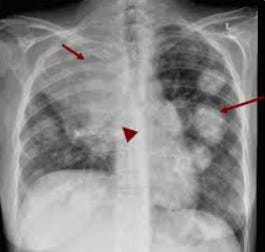In the introductory post to this cases series, I reviewed the current state of research on repurposed drugs in oncology. I recommend reading that before you read this post, as it provides essential context for understanding the crucial role these drugs can play in achieving the outcomes described in the cancer patients presented below.
I again must emphasize that the five patients below presented to me consecutively. Therefore, the outcomes presented herein are not “cherry-picked” as the few successes among dozens or hundreds treated. This behavior is increasingly common on social media (by providers and patients alike), which wreaks havoc in the psychologically susceptible cancer sufferers because it leads them to believe that repurposed drugs offer “miracle cures.”
Since the beginning of Covid and then into my Covid vaccine injury career and now integrative cancer career, I have observed innumerable clinicians who only tout their best results, never sharing the denominator of patients for whom the treatment failed or hurt (something more prevalent in the cancer world of late). That ain’t science, that’s sensationalism (and grifting). Sorry, just calling it like I see it.
Further, what is often underemphasized in such “reports” are the other, potentially contributory treatments or dietary changes. Thus, in this case series (and upcoming ones), I did the following:
-
The patients all presented consecutively, with the same stage and type of cancer (metastatic lung cancer in this series)
-
Patients were all treated by the same clinician (me)
-
All treatments employed, both SOC and repurposed, are detailed
-
Estimates of adherence to ketogenic diets/fasting are included
-
Medical records of imaging and stage, along with dates, are provided
-
Reports of intolerances or side effects to therapies are all documented
-
Clinical assessments of performance status over time are included
Of the five consecutive metastatic lung cancer patients I have treated with combination repurposed drug protocols and ketogenic diets:
-
2 received no other conventional treatments (no chemo, RT, targeted therapies etc) but not on my advice; this came out of their personal preference, both are octogenarians
-
2 received concomitant oral tyrosine kinase inhibitors
-
1 received multiple, aggressive conventional therapies – pneumonectomy, post-op RT to new metastases, and numerous cycles of various chemotherapy regimens
As you will see from this series, as well as from the studies presented in my introductory post, it is clear to me that “complementary” repurposed drug protocols have considerable efficacy. Still, I do not feel the evidence is anywhere near sufficient to suggest that patients forego “standard of care” treatments at this time.
I am putting the following case series behind a paywall because 1) I am submitting for publication, 2) I will pay the (up to $2,000) fee to make the article open access, 3) I promise to post the article to my free subscribers when that happens 4) I put an immense amount of effort into performing the detailed chart review writing up the cases for this series.
** I wrote up two versions of the case series, one short, one long – what follows is the longer, granularly documented version with concurrent commentary (10+ minute read).
-
A more concise, AI-assisted version can be found at this link (3-minute read)
Click this link for the original source of this article.
Author: Pierre Kory, MD, MPA
This content is courtesy of, and owned and copyrighted by, https://pierrekory.substack.com and its author. This content is made available by use of the public RSS feed offered by the host site and is used for educational purposes only. If you are the author or represent the host site and would like this content removed now and in the future, please contact USSANews.com using the email address in the Contact page found in the website menu.









